
Find Help
More Items From Ergsy search
-

How can I advocate for an inmate's needs?
Relevance: 100%
-

Can I send money to an inmate?
Relevance: 48%
-

Can inmates access legal assistance?
Relevance: 47%
-

What are the rules for writing to an inmate?
Relevance: 47%
-
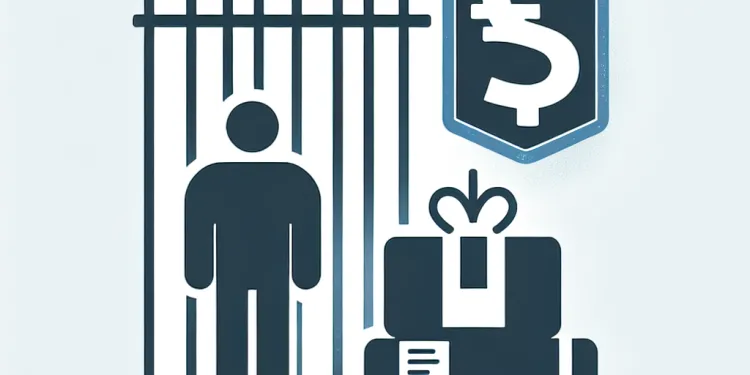
Can inmates receive packages?
Relevance: 47%
-

Can inmates have personal belongings?
Relevance: 47%
-
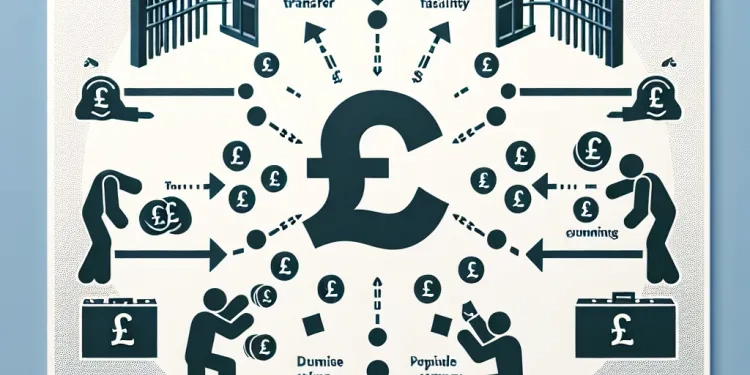
What happens if an inmate is transferred to another facility?
Relevance: 46%
-

What is an inmate commissary?
Relevance: 37%
-

How can I advocate for a shorter wait time for my surgery?
Relevance: 35%
-

How can parents advocate for their SEND child?
Relevance: 30%
-

How can I contact someone in prison?
Relevance: 27%
-

Are phone calls from prison free?
Relevance: 26%
-

Is there a library service in the prison?
Relevance: 23%
-

How do I find out where they are incarcerated?
Relevance: 23%
-

Is rehabilitation considered in indefinite prison sentences?
Relevance: 23%
-

Will I meet with a prison officer?
Relevance: 22%
-

Can inmates send mail?
Relevance: 22%
-

What are women's prisons like in the UK?
Relevance: 21%
-

What items can I send to someone in prison?
Relevance: 21%
-

What types of programs are available for inmates?
Relevance: 20%
-

How are health services provided in prison?
Relevance: 20%
-

Will I be in a shared or single cell?
Relevance: 19%
-

Someone I know has been sent to prison.
Relevance: 18%
-

What to expect on the first day in a British prison.
Relevance: 17%
-

Do I need a TV license if I'm not watching TV?
Relevance: 17%
-

Do I need a prescription for Ozempic?
Relevance: 17%
-

Do I get issued with prison clothing?
Relevance: 17%
-

How do I know if I need a TV license?
Relevance: 16%
-

Who needs to pay for a TV license in the UK?
Relevance: 16%
-

Can an indefinite sentence end with a conditional release?
Relevance: 16%
-
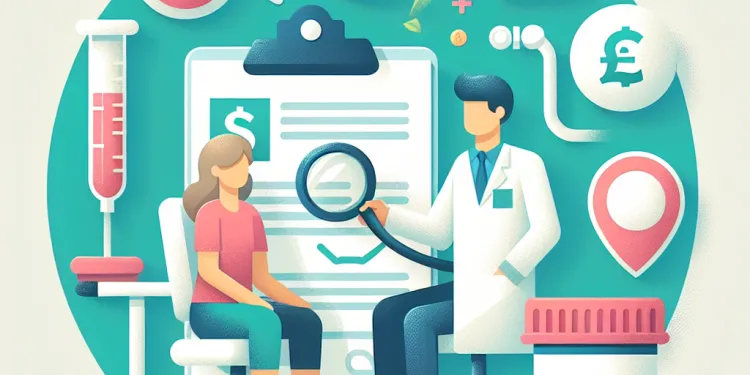
Will I need someone to accompany me for the test?
Relevance: 16%
-

Do I need a Hip Replacement?
Relevance: 16%
-

Do I need a TV license for each TV in my home?
Relevance: 16%
-

Is a prescription needed for mobility equipment?
Relevance: 16%
-
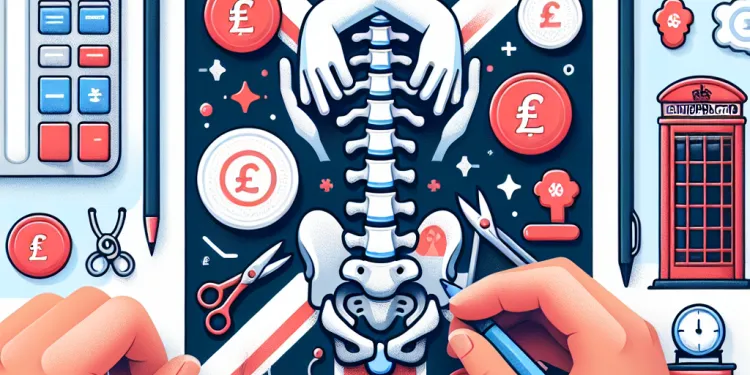
Do I need a referral to see a chiropractor?
Relevance: 16%
-
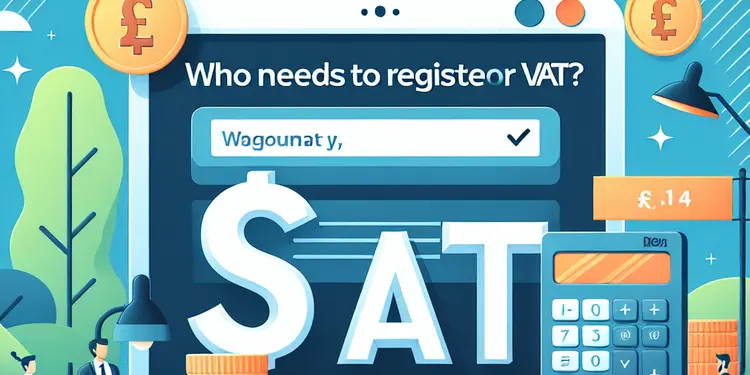
Who needs to register for VAT?
Relevance: 15%
-
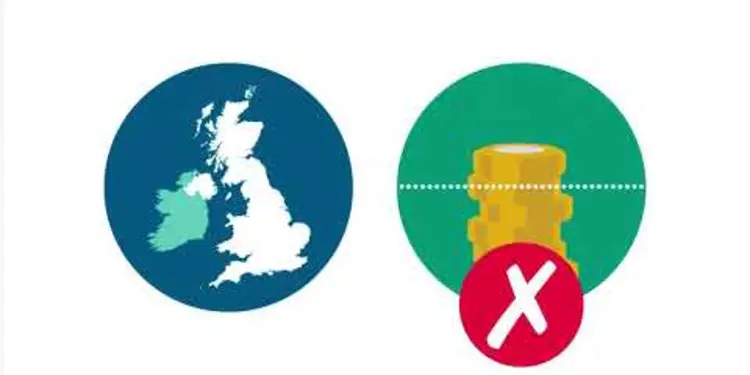
Do I need to register my business for VAT?
Relevance: 15%
-

Can lifestyle changes replace the need for weight loss jabs?
Relevance: 15%
-

Do I need to repay the EV grant?
Relevance: 15%
-

Who is responsible for assessing SEND needs?
Relevance: 15%
Understanding Advocacy for Inmates
Advocating for an inmate's needs is an important task that requires understanding the prison system, communication skills, and knowledge of relevant resources. In the UK, prisons are managed by Her Majesty's Prison and Probation Service (HMPPS), which has specific protocols and procedures for managing inmates. Advocates need to be familiar with these to effectively champion for the needs of individuals in custody.
Effective Communication
Communication is a critical part of advocacy. Establishing regular contact with the inmate can help you understand their specific needs and concerns. This might be done through scheduled visits, phone calls, or correspondence by mail. It's crucial to listen actively and empathetically to the inmate's experiences and issues. Maintaining a positive relationship with prison staff can also aid in effective advocacy.
Identifying Inmate Needs
The needs of inmates can vary widely, from healthcare and mental health services to educational programs and legal support. It's important to identify and prioritize these needs. Understanding the rights of prisoners in the UK is essential. Inmates are entitled to healthcare equivalents to those in the community, and advocates can work to ensure these rights are met. Advocates should also familiarise themselves with the specific prison rules and how they impact the inmate.
Legal Support
Legal support is a significant component of inmate advocacy. Ensuring that inmates have access to legal advice and representation can be critical, particularly for appeals or in situations involving potential human rights violations. Advocates can assist by connecting inmates with legal aid services and ensuring they have access to the necessary legal documentation and consultation.
Collaborating with Organizations
Several organizations in the UK focus on inmate welfare and rights, such as the Prison Reform Trust and the Howard League for Penal Reform. Collaborating with these organizations can provide advocates with additional resources, support, and advocacy tools. These organizations can also offer guidance on specific issues and help raise awareness about systemic problems within the prison system.
Raising Public Awareness
Public awareness is a powerful tool in advocacy. Raising awareness about an inmate's situation or broader issues within the prison system can put pressure on authorities to take action. This may involve engaging with local media, using social media platforms, or connecting with community groups interested in prison reform.
Persisting Through Challenges
Advocacy for inmates can be challenging due to bureaucratic hurdles and resistance from prison authorities. Persistence and dedication are key. Building a network of support among family members, community leaders, and other advocates can provide strength and resources to continue the effort. Successful advocacy often requires patience, resilience, and a clear understanding of the inmate’s rights and needs.
Understanding Helping People in Prison
Helping people in prison is important. It means knowing how prisons work, how to talk well, and knowing who can help. In the UK, prisons are run by Her Majesty's Prison and Probation Service (HMPPS). They have special rules for managing people in prison. People who want to help must know these rules to do a good job.
Talking Well
Talking is a big part of helping. You should talk to the person in prison often. This helps you understand what they need. You can visit them, call them, or send letters. It’s important to listen to their problems and feelings. Being friendly with prison staff can also help you do your job better.
Knowing What Prisoners Need
People in prison need different things like health care, learning programs, or legal help. It’s important to know what they need most. In the UK, prisoners have rights like health care. Helpers should make sure these rights are given. Learn about the prison’s rules and how they affect the person you are helping.
Helping with Legal Issues
Legal help is important too. Prisoners might need advice from a lawyer. This is very important if they want to appeal or if their rights are in trouble. Helpers can find legal services for prisoners and make sure they get the right papers and advice.
Working with Organizations
Many groups in the UK care about people in prison, like the Prison Reform Trust. Working with these groups can give helpers more support and tools. They can help with tricky problems and tell more people about big issues in prisons.
Telling Others
Telling others can help a lot. Letting people know about a prisoner’s situation can push leaders to make changes. You can talk to local news, use social media, or work with community groups who want to make prisons better.
Keeping Strong Through Problems
Helping prisoners can be hard because of rules and some people not wanting change. Staying strong is important. Having friends, family, and other helpers can give you more power and help. Successful help takes time, patience, and knowing what the person in prison needs and deserves.
Frequently Asked Questions
What initial steps should I take to advocate for an inmate's needs?
Begin by researching the prison system, understanding the inmate's rights, and gathering all necessary information about their situation.
How can I communicate effectively with prison officials?
Be respectful and professional, clearly state the inmate's needs, and provide any supporting documentation or evidence.
What legal resources are available for inmates?
Inmates can access legal aid societies, prison law libraries, and pro bono attorneys who specialize in prisoner rights.
How do I find out about an inmate's medical needs?
Request medical records with the inmate's consent and communicate with healthcare providers in the facility.
Can I advocate for better mental health support for an inmate?
Yes, by contacting mental health advocacy groups and working with prison mental health staff while raising awareness of the inmate's condition.
How can I support an inmate's educational opportunities?
Encourage participation in available programs, seek out correspondence courses, and research scholarships for incarcerated learners.
What should I do if an inmate is experiencing abuse?
Report the abuse to the prison administration, and if necessary, contact external organizations that oversee prison rights, like the ACLU.
How can I ensure an inmate receives proper nutrition?
Advocate for dietary needs through direct communication with prison officials and seek external support if dietary requirements are not met.
What are some ways to maintain an inmate's family connections?
Coordinate consistent communication through visits, phone calls, letters, and access to video calls if available.
Can inmates have access to religious services and materials?
Yes, inmates are generally allowed to practice their religion, and you can advocate for access to religious services and materials as needed.
How do I make public officials aware of an inmate's needs?
Contact elected officials who represent the area where the prison is located, and express concerns through letters or phone calls.
What community resources can assist in inmate advocacy?
Many nonprofit organizations aim to improve inmate conditions and can offer guidance or resources specific to your situation.
How do I help an inmate prepare for parole hearings?
Assist in gathering documentation of rehabilitation, support networks, and any achievements that demonstrate readiness for release.
How can I utilize social media for inmate advocacy?
Raising awareness through social media can gather support, but be sure to respect the privacy and security of the inmate.
What role do attorneys play in advocating for inmates?
Attorneys can provide legal representation, file necessary motions, and advocate for inmates' rights during their incarceration.
How can I advocate for special needs or disabled inmates?
Ensure the facility is aware of the accommodations required and collaborate with disability rights organizations for further support.
What kind of volunteering can help inmates?
Volunteering with literacy programs, mentorship, vocational training, or legal aid services can directly benefit inmates.
How can an inmate request a transfer to another facility?
Inmates can petition for transfer through formal requests, often with assistance from an attorney or advocate if justified by their needs.
How do I advocate for improved prison conditions overall?
Engage in policy reforms, support prison oversight bodies, and collaborate with organizations focused on prison condition improvements.
What steps can be taken if grievances go unaddressed?
Elevate the issue to higher authorities, file a formal complaint, and explore legal action if necessary after all internal options are exhausted.
How can I help someone in prison get what they need?
Start by learning about how prisons work. Find out what rights people in prison have. Collect all the important details about what is happening to them.
How can I talk well with people who work in a prison?
Be kind and polite. Say what the person needs. If you have anything to show or prove what they need, share it.
What legal help can prisoners get?
People in prison can get help with the law. They can talk to special groups that help with prison laws. They can use prison libraries to find law books. There are also lawyers who help prisoners for free.
How can I know about a prisoner's health needs?
Ask the inmate if you can see their medical records. Talk to the doctors and nurses where the inmate is staying.
How can I help an inmate get better mental health care?
Yes, you can help someone in prison get better care for their mental health.
Here are some tips to make it easier:
- Talk to the prison staff. Tell them what the inmate needs.
- Write letters. Explain why the person needs more help.
- Ask for help from a lawyer. They know how to talk to prisons.
- Find groups that can help. Look for support groups or charities.
Remember to be clear and kind when you ask for help.
Yes, you can help by talking to groups that support mental health. You can also work with the people who help with mental health in the prison. It’s important to let others know about how the inmate is feeling too.
How can I help someone in prison learn?
Join in programs that are available. Look for courses you can do by mail. Find out about scholarships for people in prison who want to learn.
What can I do if someone in prison is being hurt?
If you know someone in prison is being hurt, you can help. Tell a trusted adult, like a prison officer or a staff member. You can also call a helpline for advice. They can guide you on what to do.
Here are some tools to help:
- Speak clearly and use simple words.
- Write down what you see or hear, so you don't forget.
- Ask someone you trust to help you talk to the right people.
Tell the people who run the prison about the bad behavior. If you need more help, you can talk to groups outside the prison that protect prisoner rights, like the ACLU.
How can I make sure a prisoner gets healthy food?
To help a prisoner eat healthy food, you can do these things:
- Talk to prison staff: Ask the people who work in the prison about the food.
- Read food rules: Look at what the rules say about food in prison.
- Write letters: Send letters to people in charge if food is not healthy.
- Visit the prison: If you can, visit to see how food is given to prisoners.
You can also use helpful tools like:
- Speak-to-text apps: These apps can read letters for you.
- Online forums: Join groups where people talk about prisons and food.
Talk to the prison leaders about what food you need. If they don't help, ask people outside the prison for help.
How can you help someone in prison stay close to their family?
Stay in touch by visiting, calling on the phone, writing letters, or using video calls if you can.
Can people in prison go to religious services and get religious books?
Yes, people in prison can usually practice their religion. You can also speak up to help them get religious services and things they need.
How can I tell public officials what an inmate needs?
Talk to the people who make the rules where the prison is. You can write them a letter or call them on the phone to tell them what you think.
What can help people in jail?
Here are some things and people that can help:
- Groups in your area: These are people and places that work to make things better for people in jail. They can give advice and support.
- Lawyers: These people know a lot about the law. They can help explain what rights people have in jail.
- Supportive friends and family: People who care about those in jail can visit, write letters, and check on them to offer support.
It's helpful to talk to these people if you can. They can tell you what to do next.
There are many charities that want to help people in prison. They can give advice or things that might be useful to you.
How can I help someone in prison get ready for a parole meeting?
Here are some steps to help someone in prison:
1. **Talk to Them:** Spend time talking to the person. Ask them how they feel about the meeting.
2. **Help Them Practice:** Pretend to be the person in charge and ask questions they might hear at the meeting. This is called “role-playing.”
3. **Tell Them to Be Honest:** Remind them to always tell the truth during their meeting.
4. **Use Support Tools:** Suggest they use pictures or simple notes to help remember what to say.
5. **Be Encouraging:** Give them support and say kind words to help them feel confident.
Help collect papers that show how someone is getting better, who is helping them, and things they have done that prove they are ready to leave.
How can I use social media to help people in prison?
Using social media can help more people know and care about a problem. But remember, it is important to keep the person in prison safe and respect their privacy.
How do lawyers help people in prison?
Lawyers help people in jail by speaking up for them. They fill out important papers and make sure their rights are protected.
How can I help people in prison who have special needs or disabilities?
Make sure the building or place knows what help is needed. Work together with groups that help people with disabilities for more support.
What volunteer work can help people in prison?
Helping people in prison is important. You can do this by:
- Teaching them new skills.
- Reading books together.
- Writing letters with them.
- Playing games to help them learn.
These activities make them feel better and learn new things. Here are some things that could help:
- Use pictures and drawings to explain.
- Speak slowly and clearly.
- Use simple words.
Helping out in programs that teach reading and writing, or being a mentor, or giving job training, or helping with legal advice can be very helpful to people in prison.
How can a prisoner ask to move to a different prison?
If someone is in prison and wants to move to a different one, they can ask for a transfer. Here’s how they can do it:
- Talk to the prison officer: The prisoner should talk to a staff member about wanting to move.
- Fill out a form: The staff will give the prisoner a form to fill out. This is where they can say why they want to move.
- Get help: If the prisoner needs help understanding the form, they can ask a prison officer or a support worker.
- Wait for an answer: The prison staff will review the request and let the prisoner know their decision.
It can take some time to get an answer, so it's important to be patient.
Support tools: Prisoners can use a simple letter-writing guide or ask for help from a family member or friend to explain why they need to move. Friends or family members can talk to a prison support group for advice.
People in prison can ask to move to a different place. They can ask for this by writing a letter. It helps to have a lawyer or a person who speaks for them, especially if they have special needs.
How can I ask for better prison conditions?
Work on changing the rules, help groups that check prisons, and team up with others who want to make prisons better places.
What can you do if your problems are not fixed?
If you have a problem and it is not solved, here are some steps you can take:
- Talk Again: Speak to the person in charge. Explain your problem clearly.
- Write it Down: Write a letter or an email about your problem. Keep it short and clear.
- Ask for Help: Talk to someone you trust, like a friend or family member. They can help you.
- Use a Tool: Try using a voice recorder. You can record your message and play it for someone.
- Learn More: Look for guides or videos that can help you solve your problem. You might find them online.
Remember, it is okay to ask for help!
Ask someone important for help, write down what is wrong to tell the right people, and think about getting help from the law if no one can help you at work.
Useful Links
This website offers general information and is not a substitute for professional advice.
Always seek guidance from qualified professionals.
If you have any medical concerns or need urgent help, contact a healthcare professional or emergency services immediately.
Some of this content was generated with AI assistance. We’ve done our best to keep it accurate, helpful, and human-friendly.
- Ergsy carfully checks the information in the videos we provide here.
- Videos shown by Youtube after a video has completed, have NOT been reviewed by ERGSY.
- To view, click the arrow in centre of video.
- Most of the videos you find here will have subtitles and/or closed captions available.
- You may need to turn these on, and choose your preferred language.
- Go to the video you'd like to watch.
- If closed captions (CC) are available, settings will be visible on the bottom right of the video player.
- To turn on Captions, click settings .
- To turn off Captions, click settings again.
More Items From Ergsy search
-

How can I advocate for an inmate's needs?
Relevance: 100%
-

Can I send money to an inmate?
Relevance: 48%
-

Can inmates access legal assistance?
Relevance: 47%
-

What are the rules for writing to an inmate?
Relevance: 47%
-

Can inmates receive packages?
Relevance: 47%
-

Can inmates have personal belongings?
Relevance: 47%
-

What happens if an inmate is transferred to another facility?
Relevance: 46%
-

What is an inmate commissary?
Relevance: 37%
-

How can I advocate for a shorter wait time for my surgery?
Relevance: 35%
-

How can parents advocate for their SEND child?
Relevance: 30%
-

How can I contact someone in prison?
Relevance: 27%
-

Are phone calls from prison free?
Relevance: 26%
-

Is there a library service in the prison?
Relevance: 23%
-

How do I find out where they are incarcerated?
Relevance: 23%
-

Is rehabilitation considered in indefinite prison sentences?
Relevance: 23%
-

Will I meet with a prison officer?
Relevance: 22%
-

Can inmates send mail?
Relevance: 22%
-

What are women's prisons like in the UK?
Relevance: 21%
-

What items can I send to someone in prison?
Relevance: 21%
-

What types of programs are available for inmates?
Relevance: 20%
-

How are health services provided in prison?
Relevance: 20%
-

Will I be in a shared or single cell?
Relevance: 19%
-

Someone I know has been sent to prison.
Relevance: 18%
-

What to expect on the first day in a British prison.
Relevance: 17%
-

Do I need a TV license if I'm not watching TV?
Relevance: 17%
-

Do I need a prescription for Ozempic?
Relevance: 17%
-

Do I get issued with prison clothing?
Relevance: 17%
-

How do I know if I need a TV license?
Relevance: 16%
-

Who needs to pay for a TV license in the UK?
Relevance: 16%
-

Can an indefinite sentence end with a conditional release?
Relevance: 16%
-

Will I need someone to accompany me for the test?
Relevance: 16%
-

Do I need a Hip Replacement?
Relevance: 16%
-

Do I need a TV license for each TV in my home?
Relevance: 16%
-

Is a prescription needed for mobility equipment?
Relevance: 16%
-

Do I need a referral to see a chiropractor?
Relevance: 16%
-

Who needs to register for VAT?
Relevance: 15%
-

Do I need to register my business for VAT?
Relevance: 15%
-

Can lifestyle changes replace the need for weight loss jabs?
Relevance: 15%
-

Do I need to repay the EV grant?
Relevance: 15%
-

Who is responsible for assessing SEND needs?
Relevance: 15%


